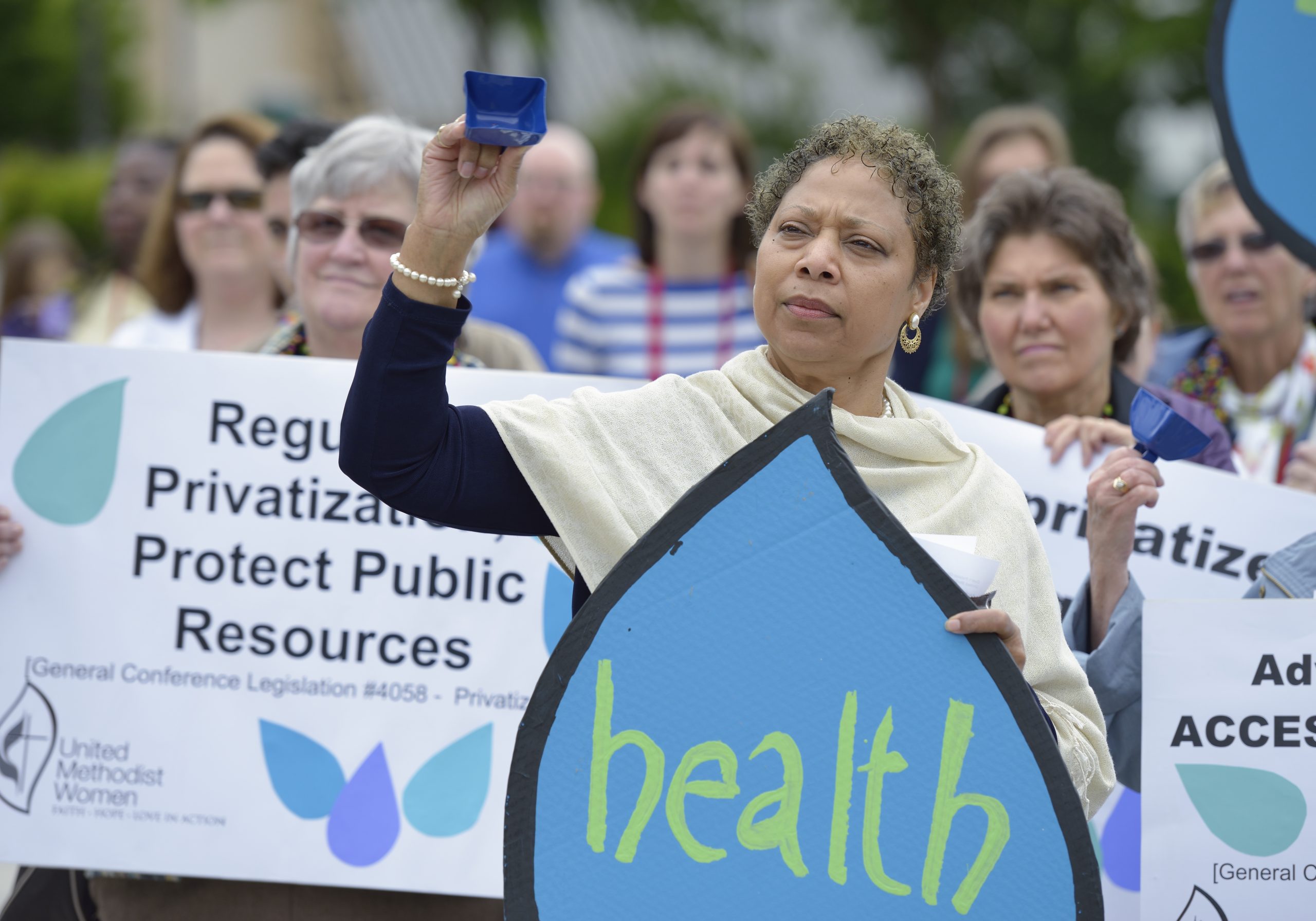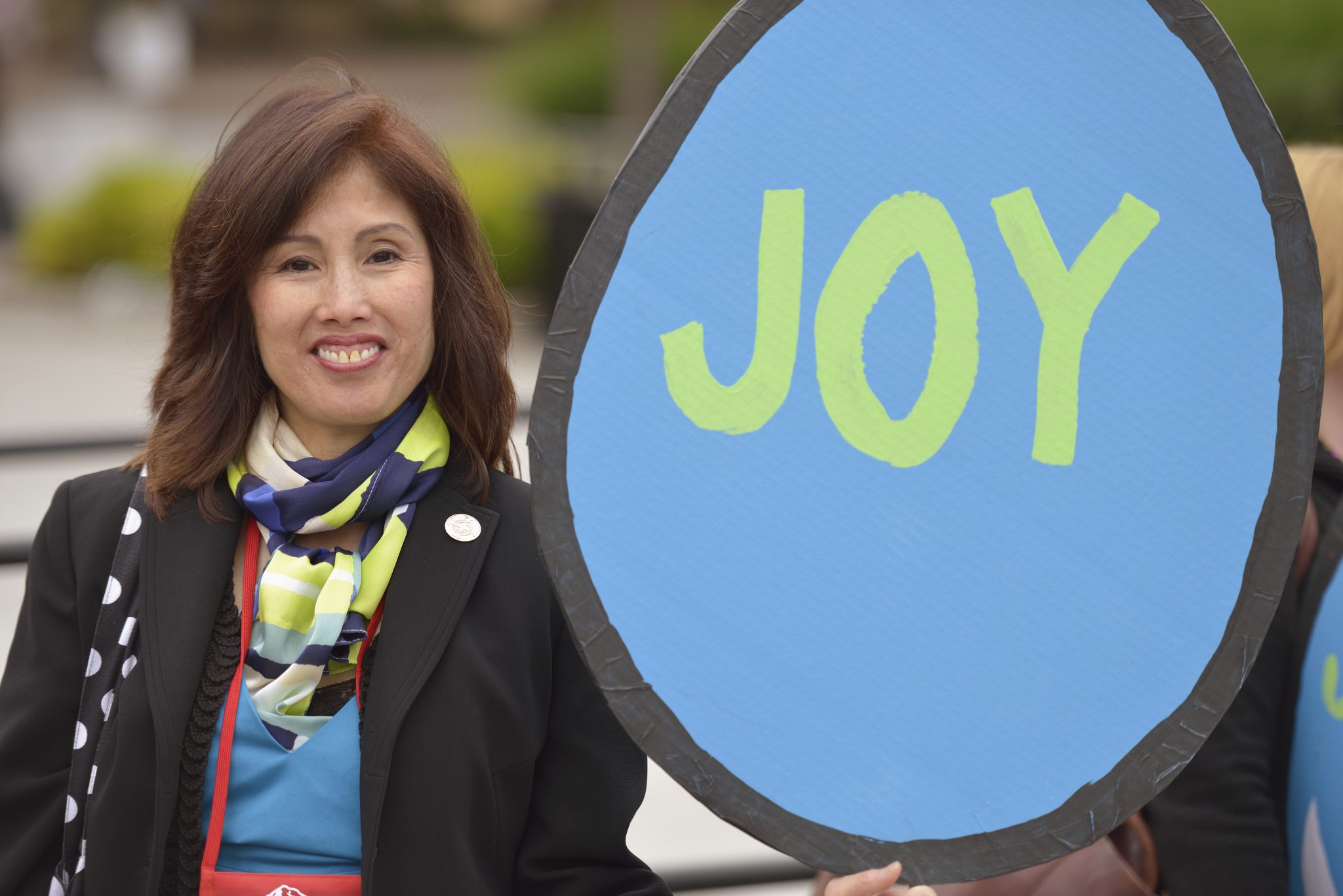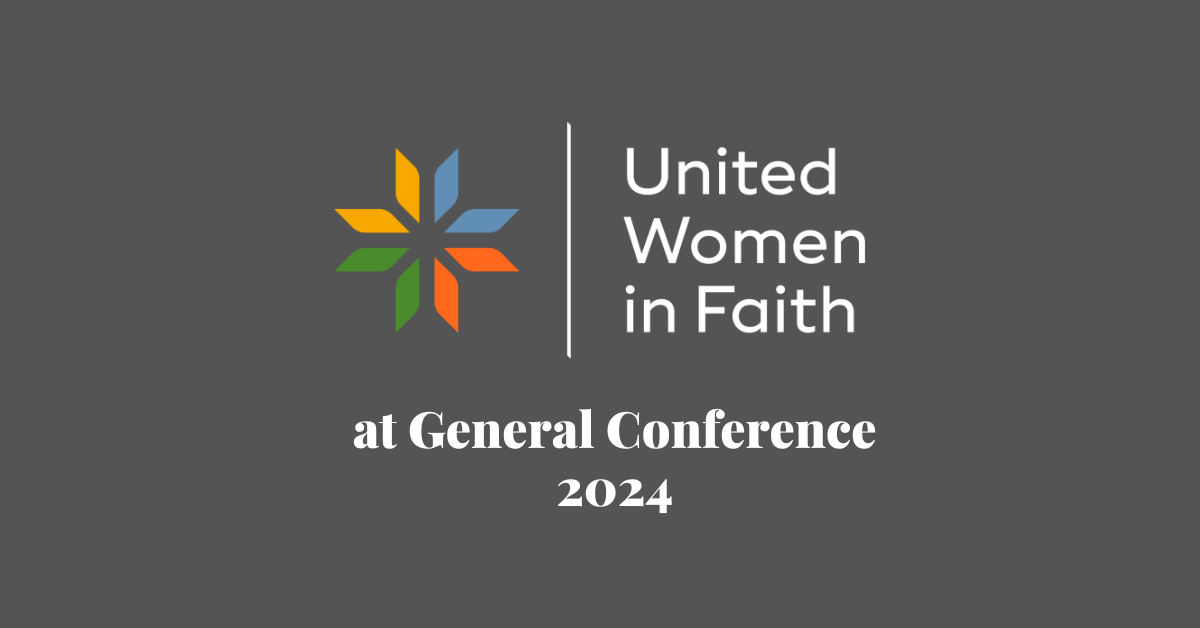
General Conference
United Women in Faith Legislation at General Conference
United Women in Faith brings petitions to the 2024 General Conference that call on the church to prioritize women, children, and youth.
by Tara Barnes
United Women in Faith is open to any woman who wants to be part of a nurturing sisterhood and positively inspire, influence, and impact her church and community. It is also the official women’s organization of The United Methodist Church, meaning we practice our faith according to United Methodist beliefs—practices and beliefs that are governed by the church’s global General Conference. The next United Methodist General Conference is set to meet April 23 to May 3, 2024, in Charlotte, North Carolina. United Women in Faith will be there to help ensure women’s voices are heard.
The Book of Discipline of The United Methodist Church requires every local church, district, conference, and jurisdiction to have an organization of United Women in Faith. It also requires a national organization to, among other duties, interpret United Women in Faith’s role in fulfilling the church’s mission, recommend programs and policies, develop mission theology, provide resources, secure funds, support regional missionaries, national mission institutions, and deaconesses and home missioners, and express the concerns of women organized for mission (¶1903). One way in which we fulfill our purpose is by bringing petitions to the General Conference that prioritize women, children, and youth.

In 2024, United Women in Faith will be bringing four new pieces of legislation to be included in the church’s Book of Resolutions, on observing Children’s Sabbath, protecting the girl child, protecting voting rights, and the status of women and realizing full human rights. The current titles of the legislation are “Children’s Sabbath,” “The Girl Child,” “The Status of Women,” and “Voting Rights Protections in the United States.” These are already included in the 2020 Advance Daily Christian Advocate, the book of reports and legislation published for General Conference delegates.
We will also be seeking readoption of 11 resolutions set to expire in 2024. These are Resolutions 1025: Environmental Racism in the US, 1028: Law of the Sea, 1029: Protection of Water, 1032: Principles for Just and Sustainable Extraction and Production, 1034: Environmental Health, 3371: A Charter for Racial Justice in an Interdependent Global Community, 3379: Stop Criminalizing Communities of Color in the United States, 3422: Speaking Out for Compassion: Transforming the Context of Hate in the US, 4056: Greed, 4058: Privatization, and 8011: Biblical Language. You can find these in The Book of Resolutions of The United Methodist Church (2016). Download the current edition for free from Cokesbury.
What is General Conference legislation?
The General Conference is the body that sets policy for The United Methodist Church and speaks for the denomination. Made up of elected delegates from around the world, it has the power to make additions and changes to the Book of Discipline and Book of Resolutions, which govern how the church makes disciples of Christ for the transformation of the world. Individuals, churches, organizations, and agencies submit these suggested additions and changes. These submissions are the legislation on which General Conference votes.
All delegates and legislation at General Conference are first assigned to committees before coming before the full conference. At the 2024 General Conference, considered the postponed 2020 conference, 862 delegates will be assigned to 14 committees, with hundreds of petitions divided among the committees. Petitions that pass in committee come to the full body for a vote.
Prioritizing children
The petition “Children’s Sabbath” identifies the third Sunday in October as The United Methodist Church’s U.S. observance of Children’s Sabbath and adds it to the program calendar of the church. Children’s Sabbath is a multifaith weekend encouraging worshippers across the country to focus prayers, programs, services, and action on learning about problems facing children and on sacred teachings calling us to love and protect children. The observance is endorsed by the General Board of Global Ministries, United Women in Faith, and the General Board of Church and Society as well as the National Council of the Churches of Christ in the USA, an ecumenical agency of which The United Methodist Church is a member. Resources are produced and distributed by the Children’s Defense Fund. The petition does not seek for the observance to be one of the church’s Special Sundays, so no offering collection is involved, just a call for the church to designate time to prioritize children.
“The Girl Child” focuses on the well-being of girls and the challenges preventing girls from living lives free of gender-based subjugation. This petition calls on the church to engage in advocacy to rectify conditions that limit girls from reaching their fullest potential in safe and healthy environments, asking for the church’s help in ending child marriage, female genital mutilation, and child labor and in ensuring girls have access to clean water, safe homes and quality health care, and education.
The rights of women
In 2020, the United States celebrated the 100th anniversary of the passage of the 19th amendment giving women the right to vote. As we honor the work of the women’s suffrage movement we also recognize and lament that women of color in many cases did not reap benefits from passage of the 19th amendment. Despite the active work of women of color for women’s suffrage, many were left without the right to vote for many more years. The history of voting rights in the United States has been fraught with practices of extreme violence, intimidation, and systemic disenfranchisement of people of color.
The United Methodist Church has a historic and present commitment to racial justice, equity, and equality under the law. “Voting Rights Protections in the United States” calls attention to the disproportionate impact of voter suppression and disenfranchisement of communities and women of color in the United States and recruits the church into ensuring all communities have access to full and equitable rights in the voting polls.

In the lead-up to and during General Conference, United Women in Faith will keep members updated with news, info, and insight on our blog and through our newsletter.
In the 21st century, women have still not achieved equitable status in church and society, with the poorest and most marginalized women experiencing the greatest inequality. Efforts toward women’s equality must specifically address these different realities. “The Status of Women” calls on the church to address rights of women and work toward women’s equity globally in areas such as education, health, violence against women, migration, climate justice, and media—work that moves us all toward Beloved Community.
Work still to be done
The resolutions we hope to renew call on the church to continue to address climate change, racial injustice, and gender inequity in various forms, faith work that remains crucial to fulfilling Christ’s instruction to love our neighbors.
One of the resolutions needing to be renewed is the centerpiece of our racial justice work: The Charter for Racial Justice. The first Charter for Racial Policies was adopted by the Woman’s Division of Christian Service of the Methodist Church in 1952, and it was adopted by the Methodist Church in 1980. Learn more about our historical and ongoing work through our Racial Justice Time Line.
Why is legislation important?
The United Methodist Church has a role to play in building God’s kin-dom. General Conference is how our church speaks. The church can’t fulfill its mission to make disciples of Christ for the transformation of the world without the voices of women.
What can you do?
Tell your story. Why are you a member of United Women in Faith? How does God call you to put love into action? How have you been nurtured and uplifted by being part of our sisterhood? What does being United Methodist mean to you?
Celebrate. Be sure to celebrate and support United Women in Faith members who have stepped up to leadership in the church.
Learn. Learn more about what The United Methodist Church believes, about General Conference, and about the plans and petitions on which delegates will be voting.
Reach out. Let your conference’s delegates to General Conference know that you’re a United Women in Faith member and are praying for them. Ask how you can support them.
Promote.Talk about United Women in Faith’s legislation to change lives of the marginalized. Talk about our Christ-centered mission to protect the vulnerable. Talk about how laywomen’s organizing gained the women in our church the opportunity to vote at General Conference and be ordained as clergy. Talk about how crucial United Women in Faith is to the future of The United Methodist Church.
Give. We were founded in 1869 as the Woman’s Foreign Missionary Society of the Methodist Episcopal Church. For more than 150 years, we’ve continued to be in mission through denominational splits, mergers, takeovers, and name changes because we’ve allowed ourselves to grow and change to best answer God’s call for our time. We have been and continue to be a crucial part of The United Methodist Church’s mission to make disciples of Christ for the transformation of the world. That’s all because of members like you.
United Women in Faith is committed to our nearly 90 national mission institutions and to our regional missionaries and international partners. We continue to administer the Office of Deaconess and Home Missioner, offer national and international grants and scholarships, and publish mission curricula, prayer guides, monthly programs, and a bimonthly magazine. The Reading Program continues to grow and expand. Members and all United Methodists can continue to count on our resources and events like Mission u, Leadership Development Days, Soul Care Retreats, and Assembly.
In the past quadrennium we have trained thousands of women and given hundreds of scholarships and millions in grants. We’ve supported hundreds of thousands in some of the poorest communities in the United States through our national mission institutions and economically empowered women around the globe. We’ve held online learning events and legislative days and taken thousands of actions for climate and racial justice. We consecrated 78 deaconesses and home missioners, with more to come at this General Conference.
These are just some examples of how you through your giving put love into action every day. The church needs faith leaders like you who believe in a God of abundance and a bright future.
Pray. Pray for the denomination and General Conference organizers and delegates. Pray especially for women delegates and fellow United Women in Faith members serving as delegates as they work make sure the church prioritizes women, children, and youth.
Love. Love God. Love one another. Love the church. Be open to nudges from the Holy Spirit and to the voices you may not always hear. Let love be the lens through which you view all of God’s children.
Tara Barnes is director of denominational relations for United Women in Faith.

